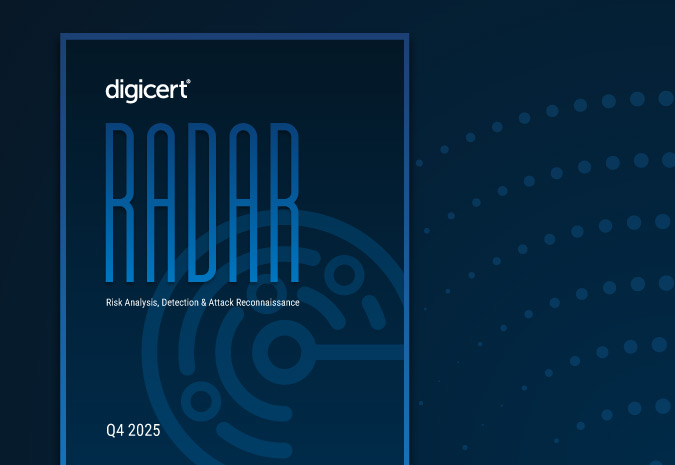Setting the New Standard for Trust in Smart Home with Matter Protocol

For the first time, the biggest names in smart home (Apple, Amazon, Google, Samsung and more) have come together to agree on a common set of standards, which will allow for secure, reliable device interoperability. Smart home device manufacturers that do not act now to get involved could get left behind. At DigiCert, we’ve supported the Matter standard throughout the process and believe it will promote greater interoperability, security and digital trust for consumers.
The Matter specification is nearly finalized and it’s time for all players in the industry to start working together to produce Matter-compliant devices.
What is the Matter protocol?
The Matter protocol is the first effort to provide a standard for secure, reliable interoperability for smart home devices, mobile apps and cloud services. It’s not a replacement for existing platforms, but a common way for devices and platform providers to communicate securely and reliably.
Originally known as CHIP (Connected Home Over IP), members of Matter include Amazon, Apple, DigiCert, Google, Samsung and other major players in the smart home space. There are over 250 companies involved in Matter, and DigiCert has played a key role in developing the security related aspects of the standard. This broad support will ensure that all devices, apps and platforms can work seamlessly together. Additionally, Matter is available globally and is an open-source standard.
Matter has made it clear that the goal is to have compliant devices on the shelf for the 2022 holiday season. Manufacturers should prepare now to put the right pieces in place to ensure compliance with the specification. Products that meet the specification will be able to place the Matter logo on their products, which will assure customers that the device will be secure and will work seamlessly with any other Matter-compliant device. The Matter seal will become a recognized and sought after branding for consumers across the globe. When your customers see the Matter logo on your device, they will know they can trust it to connect seamlessly and securely.
PKI & the road to compliance with Matter
Public key infrastructure (PKI) is a tried and true standard for achieving digital trust. For years, critical industries have used PKI when devices from multiple manufacturers need to seamlessly exchange information and work together in a secure way. So, while the smart home industry is just beginning down the path to create interoperability and security, they are learning from best practices done in other industries.
As the global leader in digital trust, DigiCert was invited to help develop the PKI specification for the Matter protocol. To achieve this multi-manufacturer interoperability, the first step is creating shared roots of trust that are securely created and managed by appropriate parties like DigiCert. Once the trusted roots are created, issuing CAs that have been signed by these trusted roots are created and used to issue the trusted end entity, or device attestation, certificates. However, managing your certificate infrastructure will require robust capabilities for traceability, revocation and reporting. This is where we recommend a certificate management platform like DigiCert® IoT Trust Manager.
How can DigiCert help manufacturers become Matter-compliant?
DigiCert can help manufacturers by helping you with what we do best: deploying scalable PKI products and services in complex ecosystems. We remove the heavy compliance requirements, accelerate your time to market and deploy solutions in a variety of ways to help you achieve compliance.
Furthermore, when you integrate Matter onto devices with DigiCert IoT Trust Manager, you get access to the world’s leading digital trust platform and a comprehensive, end-to-end IoT security platform for connected devices. With DigiCert IoT Trust Manager, you can quickly get to market with the highest level of trust and without the risk or headache of a DIY PKI system.
In sum, with DigiCert and DigiCert IoT Trust Manager you have the speed, flexibility, scalability, familiarity and simplicity you need to manage your devices and remain compliant with Matter.
- Speed — Our trusted roots provide faster route-to-market options so that manufacturers require less time to readiness with an issuing CA. DigiCert can handle the security of your IoT devices’ lifecycles from end to end and remove the compliance and audit burden.
- Flexibility — DigiCert IoT Trust Manager gives you flexibility to deploy on-premises, in-country or in the cloud to meet stringent requirements, custom integrations and airgap needs.,
- Scalability — DigiCert IoT Trust Manager is a scalable management platform so that you can issue and deliver device attestation certificates. Plus, our global operations make scale easy to accomplish. We give you a turnkey operation to accelerate time to market and adopt Matter devices.
- Familiarity — At DigiCert, we have experience running these programs. We are experts on IoT and the Matter standard. After all, we helped write it!
- Simplicity — As the world leader in digital trust, we manage compliance and architecture with deep experience running the world’s most ubiquitous, largest CAs. We handle the entire lifecycle: securely store keys, generate key pairs, updating the device and decommissioning, even years down the road. With a long-lived certificate lifecycle, you need a full end-to-end solution for device attestation. Don’t DIY PKI; let DigiCert IoT Trust Manager manage the heavy lifting for you.
DigiCert is the PKI expert regarding the Matter protocol — we’ve invested in it for the past three years. Additionally, as the global leader in digital trust, we are security experts and allow you to focus on what you do best: building smart devices. So choose DigiCert for secure smart home interoperability with Matter.
Learn more at https://www.digicert.com/iot/matter-iot-device-certification.




